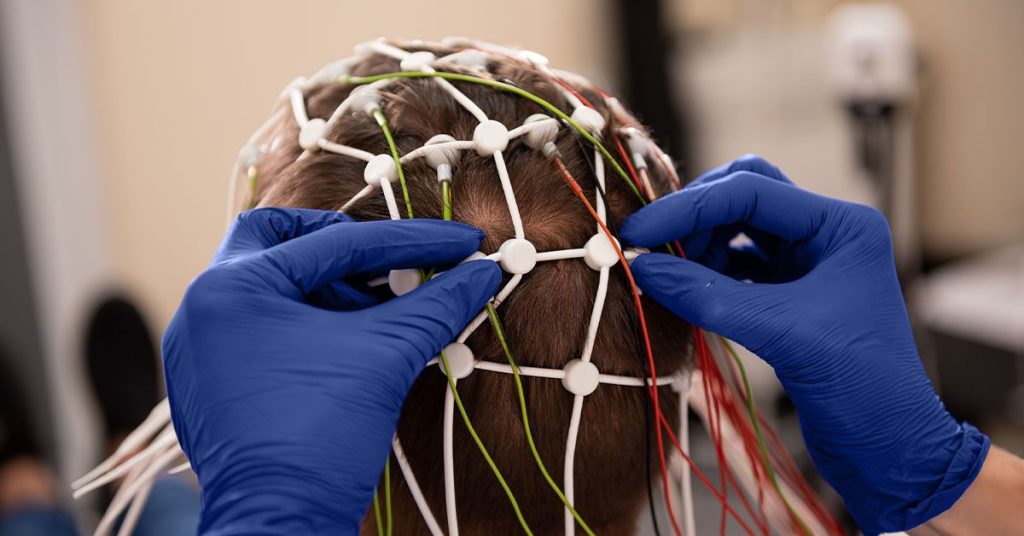A recent study in mice challenges the longstanding hypothesis that the brain undergoes detoxification during sleep. The research found that mice were able to eliminate more toxins and metabolites from their brains while awake than during sleep or under anesthesia. This discovery was surprising, as prior beliefs held that sleep was essential for clearing out waste products from the brain. Sleep has long been thought to benefit the brain in numerous ways, such as memory consolidation and restoration of brain function. However, this study raises questions about the importance of sleep in brain cleansing processes.
The study, published in Nature Neuroscience, measured the movement of a fluorescent dye within the brains of mice, which acted as a marker for toxins and metabolites. The results showed that significantly less dye was cleared from the brain during sleep compared to when the mice were awake. These findings challenge the widely accepted notion that detoxification occurs primarily during sleep. The researchers also observed a 50% reduction in brain clearance when the mice were under anesthesia, further complicating the understanding of brain cleansing mechanisms.
Senior investigator of the study, Nicholas Franks, noted that while the hypothesis of brain detoxification during sleep has been popular, it still remains unclear why sleep is essential for mammals. There are several theories, including the consolidation of memories and the maintenance of neuronal connections during sleep. Despite the recent findings, it is still unclear whether the results in mice can be directly translated to humans, making it necessary for further research to confirm the role of sleep in brain cleansing processes.
Jonathan Cedernaes, a researcher not involved in the study, expressed concerns regarding the study’s limitations, including the use of mice and the choice of dye for measuring brain clearance. He emphasized the need for further studies to validate the findings and consider the impact of circadian rhythms on brain detoxification. Cedernaes pointed out that while sleep may not play a direct role in clearing metabolites from the brain, it has demonstrated restorative properties that are beneficial for brain health. The debate surrounding the impact of sleep on brain function and neurodegenerative diseases continues, with further research needed to clarify the relationship.
While the recent study challenges the traditional belief that brain detoxification occurs during sleep, it does not discount the importance of sleep in maintaining brain health. The study’s findings suggest that the waking state, rather than sleep, may provide improved clearance of toxins and metabolites from the brain. However, the specific mechanisms responsible for this clearance remain unknown, leaving room for further investigation. It is important to consider the broader impact of sleep on brain health, as research has shown that insufficient or poor-quality sleep may be linked to a higher risk of neurodegenerative diseases, such as Alzheimer’s.
In conclusion, the recent study in mice challenges the prevailing hypothesis of brain detoxification during sleep, suggesting that the waking state may play a more significant role in clearing toxins from the brain. Despite these findings, the benefits of sleep for brain health and function remain important aspects of overall well-being. Further research is needed to clarify the relationship between sleep and brain cleansing processes, and to better understand the impact of sleep on neurodegenerative diseases. The debate surrounding the importance of sleep in maintaining brain health continues, with ongoing studies aimed at unraveling the complexities of sleep and its role in brain function.













